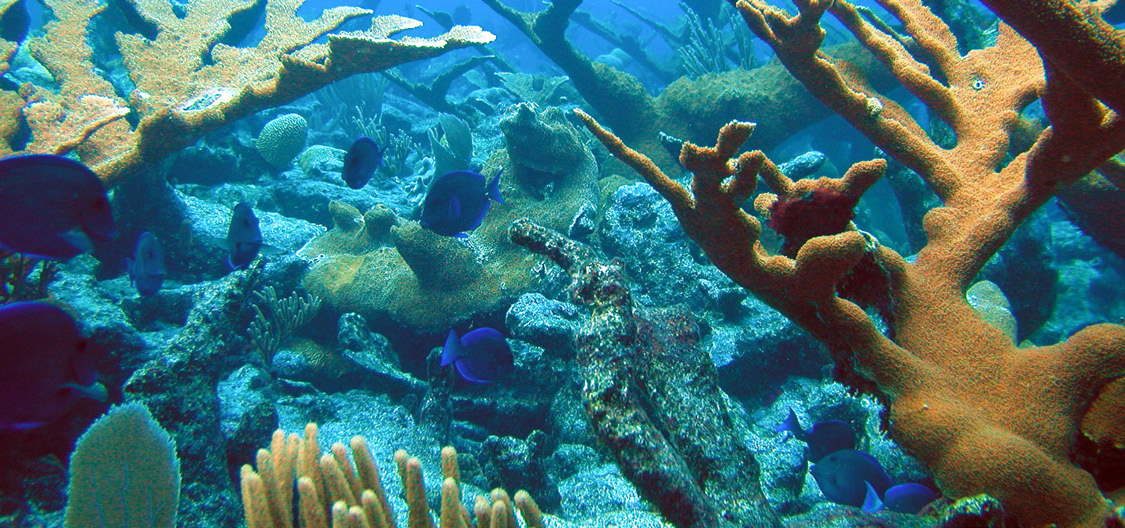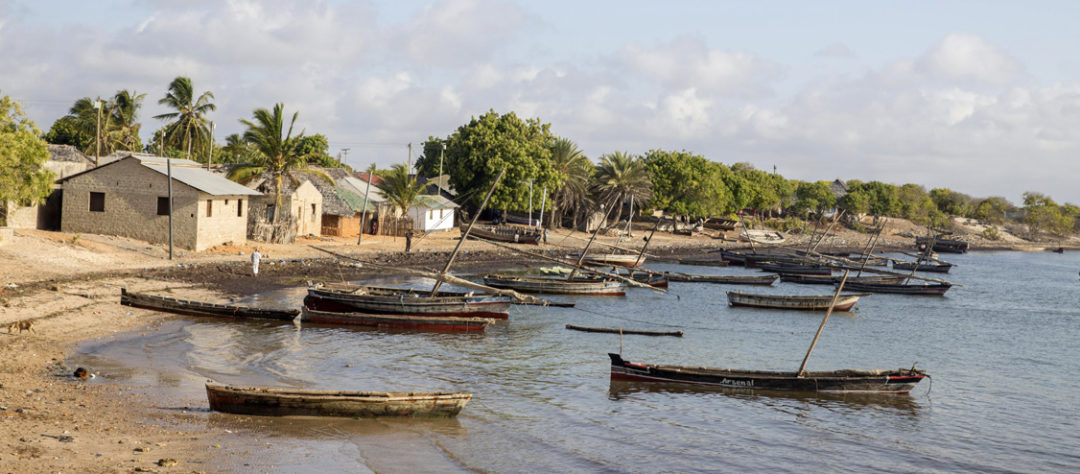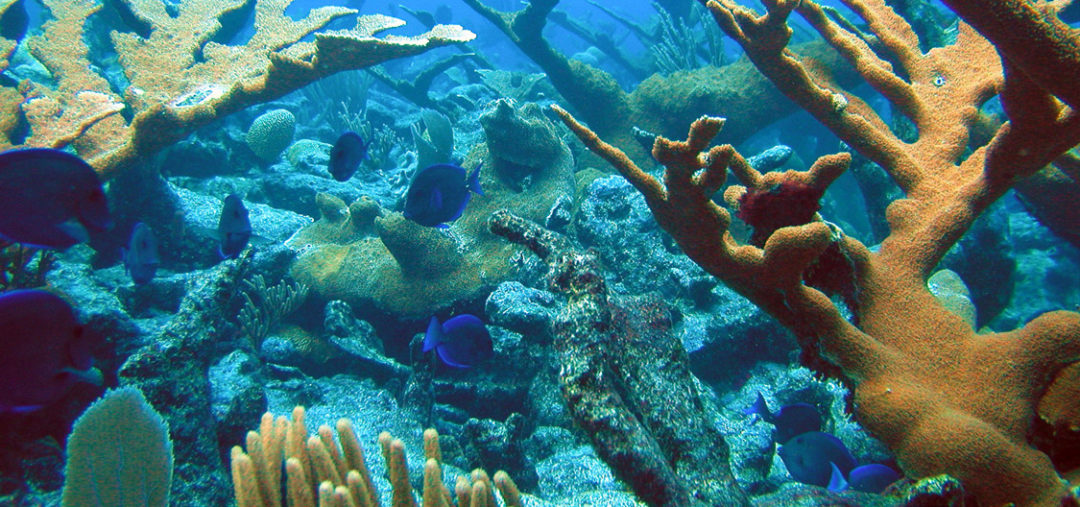Where We Work
Puerto Rico’s coastline is home to more than 1,930 square miles of shallow coral reef ecosystems, including mangrove forests and seagrass beds. These habitats support more than 677 species of fish and 237 species of coral. However, over 93 percent of Puerto Rico’s coral reefs are threatened by sedimentation, algal growth, overfishing, bleaching and climate change.
Our Approach
Coral reef conservation efforts in Puerto Rico build on successes in neighboring Caribbean islands and foster collaboration among stakeholders at the federal, regional, and local levels to ensure ocean habitats are protected for the benefit of people and nature. Effective management of marine and coastal protected areas is achieved through policy analysis and support of cooperative management efforts with local communities and stakeholders. Additionally, science-based decision-making
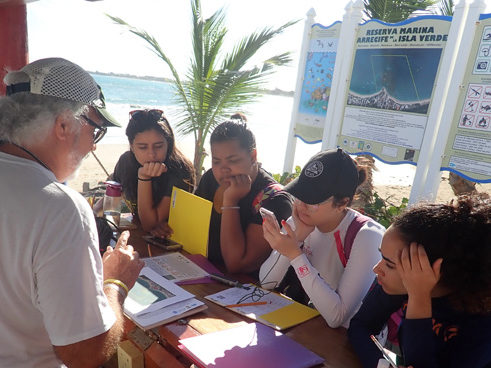
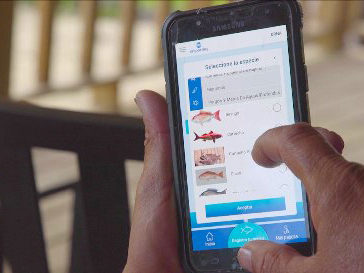
Our Accomplishments
Our work has directly benefited approximately 423 square miles of coral reef habitat. Partnership efforts have engaged 1,117 people in training workshops and learning exchanges, and provided 21 sites with technical support.
- Developed the first prototype for an electronic reporting application specific to Puerto Rico. This technology supports more informed, timely and effective management decisions for reef fisheries.
- DNER officially adopted the electronic Reporting System (eReporting), and more than 700 commercials fishers are registered on it. The Secretary of DNER signed an administrative order to formally adopt the eReporting mobile app as one of the official ways that the commercial fishers can report the fisher’s daily catch required by local and federal regulations.
- Supported training of fishers in responsible fishing practices, including regulations, license and permit requirements, through the development of the Commercial Fishers Education Program Guiding Document.
- Developed human-use maps and GIS geodatabase for Culebra Island to identify human stressors to coral reefs. The spatial information developed supports integrated coastal zone management efforts. All data is available to managers and the general public.
- Puerto Rico joined the Caribbean Challenge Initiative (CCI) by committing to conserve at least 20% of nearshore marine environments as national marine protected areas by 2020 and create a National Conservation Trust Fund. Nature Conservancy staff advised the Puerto Rican CCI delegation, provided technical support to draft the Puerto Rico Declaration, participated in key meetings leading to a summit, and hosted the first ministerial CCI meeting. The PR Natural Protected Areas Trust Fund is currently being developed and will be fully functional by 2019.
- Provided technical support to develop the first document to assess Puerto Rico’s vulnerability to climate change (“Puerto Rico State of the Climate Report”). Based on this report, the governor of Puerto Rico issued five executive orders which mandate all public agencies to create climate adaptation plans for public infrastructure.
- More than ten restaurants joined us in the Reef Responsible Initiative to raise awareness about the vital role restaurants, consumers, and fishers can play in the fight to save coral reefs by choosing sustainable seafood. This initiative is a collaborative effort with DNER, Caribbean Fishery Management Council, and Sea Grant Program.
- The Arrecifes Isla Verde Nature Reserve completed four years of a successful community water quality program. As part of our commitment to marine protected areas, we provided seed funding to support the implementation of best management practices leading by organizations with an active co-manage with DNER. The CCI, DNER, TNC, and CBF completed the Puerto Rico Conservation Fund Sensitization Workshop to provide key stakeholders with an overview of conservation trust funds generally (history, purposes, benefits, among other things) and the Caribbean Challenge Initiative/Caribbean Biodiversity Fund, specifically; and to identify next steps to the establishment and capitalization of a fund in Puerto Rico. More than a dozen local and federal partners expressed their support for developing the new entity that will allocate resources to support the conservation of marine protected areas in Puerto Rico. The bylaws for the new entity have been completed, and we are working on the following steps to incorporate it under the laws of the Puerto Rico government.
The electronic reporting application benefits commercial fishers by providing them with personal records of their catch and making it easier to enter and send their data using their phones, tablet, or computer.
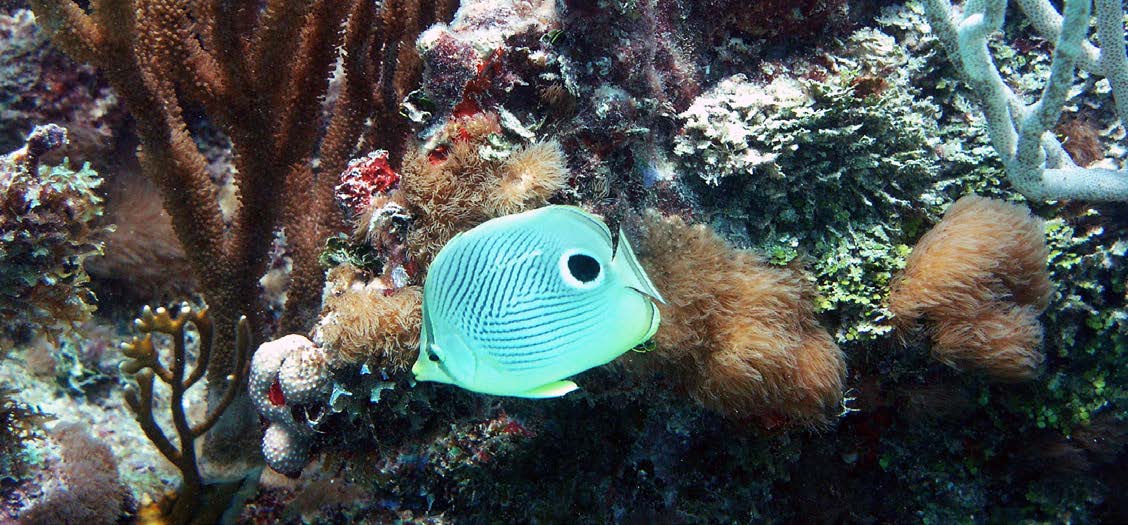
SUCCESS STORY: The Puerto Rico Coastal and Marine Protected Areas Fund
Marine protected areas cover 27% of Puerto Rico’s territorial sea. These marine protected areas (MPAs) are complex management zones and subject to many pressures. These include pollution from land-based sources and the effects of boating and other aquatic activities.
Because Puerto Rico’s Department of Natural and Environmental Resources (DNER), and co-managers of the MPAs have limited access to economic resources, TNC is working with the DNER to establish the first Puerto Rico Coastal and Marine Protected Areas Fund.
The Fund will work hand in hand with the DNER and environmental organizations in Puerto Rico to implement strategies that promote marine resource conservation to address these pressures and their negative impacts.
Buoyed by a Coalition of Support
Creation of the Fund is supported by the Caribbean Challenge Initiative, the Caribbean Biodiversity Fund, and a dozen other funds in the Caribbean region. In total, more than 15 governmental and private organizations are involved in the Fund development process.
A Steady Source of Funding Support on the Horizon
The Fund will be sustained through producing its own recurrent funds, and aims to be a steady support in protecting the marine resources of the islands of Puerto Rico.
The organization’s bylaws have been finalized and the Fund is expected to be incorporated between 2021 and 2022. Once the Fund’s board is constituted, they will develop funding priorities.
